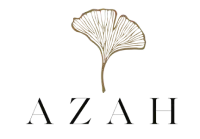
Your Guide To Detecting Breast Cancer

It’s October, which means it is Breast Cancer Awareness Month! Spreading awareness about this type of cancer is crucial because detecting your symptoms early can make all the difference when it comes to a successful treatment. Before we dive into how you can detect these symptoms, let’s get to know what Breast Cancer really is. Here are some facts to get you started:
- Breast Cancer is a form of cancer (increased cell growth) that occurs on the breasts.
- It is the most common form of cancer diagnosed in women, but it can also rarely affect men. In India, nearly 14% of all cancers in women are breast cancer.
- Breast cancer is most common in women above the age of 50 and extremely rare in anyone below the age of 25.
- Post-cancer survival rates for women are comparatively much lower in India than in other countries because of late detection of symptoms.
The best way to detect any symptoms of breast cancer is to do a “Breast Self-Exam.”
- A breast self-exam is a check-up that you can do to look for changes or problems in the breast tissue.
- The best time to do a self-exam is 3-5 days after your period starts.
Here’s how you can do one yourself!
STEP ONE
Begin by lying down on your back and with your hand, gently yet firmly press down on your breast to examine it. Use a circular or up-and-down pattern to make sure you are covering all of the breast tissue.
Look Out For: Lumps, Rashes, Skin Changes
STEP TWO
Now sit up and repeat the same process by examining your armpit. This is because breast tissue extends to that area. Also, repeat the process by raising your arms and examining your breasts in the mirror.
Look Out For: Lumps, Rashes, Skin Changes
STEP THREE
Next, gently examine and squeeze your nipple.
Look Out For: Dimpling or puckering of the nipple, Discharge (Yellow/clear/blood), Change of the position of nipple, Inverted nipple (pushed inward instead of sticking out), Redness, Swelling
STEP FOUR
Head on to the mirror and take a good look!
Look Out For: Visible distortion of Breast Size, Lumps, Swelling
Doing this self check-up every month or so is essential to be added to your routine! Knowing about your body and what is normal or abnormal for it is information that you should definitely make a record of. Breast Cancer is one of the few cancers that gives you physical, tangible symptoms even in the early stages, making its detection possible. Share this guide with your friends and family so they too can understand the early signs and detect them if necessary!
